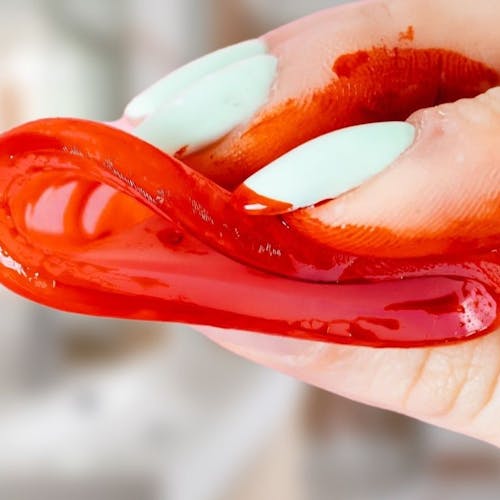This website uses cookies to enhance the user experience. By using Yoppie you are agreeing to our use of cookies.
What The Heck Are Uterine Polyps?
Written by Yoppie
28 Mar 2022
Uterine polyps sound gross - what are they?
Where do uterine polyps come from?
Are uterine polyps cancerous?
What symptoms do uterine polyps cause?
What do I do if I have these symptoms?
I have uterine polyps - how will my doctor treat them?
You probably have a vague idea of what uterine polyps are based on the name; polyps that form in the uterus. But if you have a hard time picturing them, why they grow there, what symptoms they could cause, how they’re treated, and more, you’re in the right place! We’re doing a deep dive on all things uterine polyps. Let’s take a look in that uterus of yours…
Uterine polyps sound gross - what are they?
Uterine polyps are growths that attach to the inner wall of the uterus and extend out into the uterine cavity. As you can imagine, this causes some problems! These polyps form due to an overgrowth of cells in the endometrium (the lining of the uterus), and although they are typically benign - meaning they are noncancerous - some can occasionally be cancerous or turn into cancer over time, so it’s important to know they’re there.
Uterine polyps can grow to be anything from a few millimetres in size (picture a sesame seed!) to several centimetres in size (a golf ball… yikes), and you could end up with just one or a few of them all at once. In most cases, they stay in the uterus, but they have been known to slip down into the cervix and even further down into the vagina.
Where do uterine polyps come from?
Good question - why do these little nasties decide to grow in your uterus?! There are several risk factors that could determine your likelihood for uterine polyps, which include being perimenopausal or menopausal, having high blood pressure, being obese, and taking certain medications, such as tamoxifen (a drug therapy for breast cancer).
Uterine polyps tend to grow because of circulating estrogen, so they are mostly found in people who are in the early stages of, or going through, menopause due to the hormonal factors associated with this.
Are uterine polyps cancerous?
Mostly, no - they’re nothing to worry about. But in some rare cases they can be, so it’s worth knowing about so you can get them checked out. One study which looked at a total of 1011 women suffering from endometrial polyps found that 95.4% of the polyps were reported as benign (noncancerous), with the others being reported as atypical hyperplasia (a precancerous condition) and only 1.3% being cancerous.
What symptoms do uterine polyps cause?
The symptoms of uterine polyps are pretty similar to many other uterus-related conditions, so may be difficult to diagnose. They include:
- Irregular periods (the most common symptom, with around half of people with uterine polyps experiencing this)
- An unusually heavy flow during your period
- Bleeding or spotting between periods
- Bleeding or spotting after menopause
- Fertility issues
What do I do if I have these symptoms?
The symptoms above could be a sign of a lot of different conditions, but the best place to start is always to see your GP and let them know what’s been going on. They will likely ask about your period history (your level of flow, regularity, etc.) so tracking this is always handy. Be sure to explain any unusual symptoms you’ve been having, such as the ones listed above. Your doctor may choose to do a gynaecological exam, and/or further tests such as:
- A transvaginal ultrasound - where an ultrasound device is inserted into the vagina to see inside the uterus
- A sonohysterography - where sterile fluid is introduced into the uterus through a thin tube, which causes the uterus to expand for a clearer image of any growths
- A hysteroscopy - when a long, thin tube with a telescope is inserted through the vagina into the uterus, allowing the doctor to examine the inside
- An endometrial biopsy - a plastic instrument is used to collect tissue from the inner walls of the uterus and test
- Curettage - a long metal instrument collects tissue from the inner walls of the uterus and can scrape tissue or polyps to remove them
Some of these procedures can be used both to diagnose uterine polyps and to treat them - your doctor can recommend which might be best for you.
I have uterine polyps - how will my doctor treat them?
Treatment isn’t always necessary if the polyps are small and not causing any symptoms, but if they are growing larger, causing heavy bleeding, fertility or pregnancy issues, or could be precancerous or cancerous, then you will likely be recommended to have them removed so they don’t cause further issues. As well as the above procedures, your doctor may also prescribe medications that can help to regulate any hormonal imbalances to relieve and manage symptoms.
Do you want to know more about uterine polyps?? We’re always happy to answer any additional questions you have, so feel free to shoot them over to us by interacting on our Full Stop FB group, or getting in touch with us over on our Instagram: @itsyoppie. Don't forget that our personalised menstrual cycle subscription box can get organic tampons, PMS supplements and much more delivered easily and regularly through your letterbox, which at least takes care of some of what's going on down there.
Section jump
Back to top
Subscribe To Our Newsletter
YOPPIE





© 2026 Yoppie is a registered trademark of Phlo Technologies Ltd.
Yoppie's supplements are not a substitute for a varied diet and healthy lifestyle and are not intended to diagnose, treat, or cure any disease. If you are pregnant, breastfeeding, have a medical condition or are under medical supervision, please consult with your doctor before taking any of our products.






